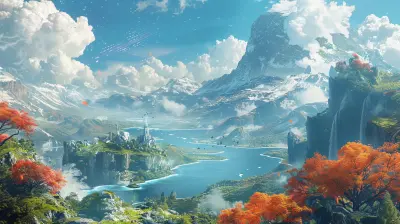How Geography Shapes the Politics and Conflicts in Game Worlds
7 November 2025
Ever wonder why certain factions in your favorite game are always at war? Or why some regions are poor, while others thrive? It's not just creative storytelling—there’s usually a deeper reason, and it's often tied to one powerful element: geography.
Game worlds, much like our real one, are shaped by their terrain, location, and natural resources. And these geographical features heavily influence not just the map, but the entire socio-political landscape. Whether you’re storming castles in Skyrim, navigating interstellar empires in Stellaris, or managing medieval diplomacy in Crusader Kings, geography plays a central role in shaping politics and driving conflict.
Let’s dive deep into how geography becomes the ultimate game master behind the scenes.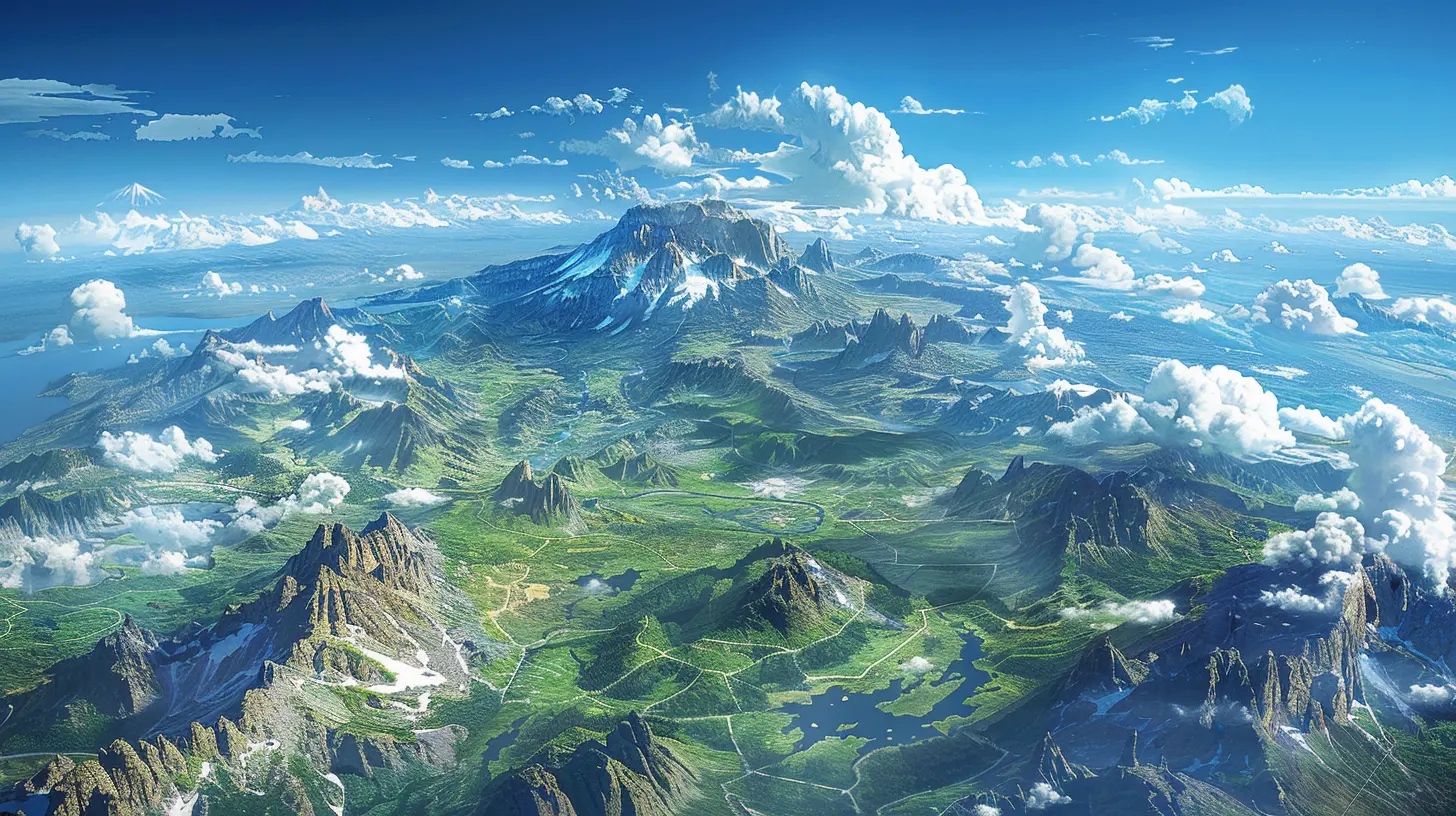
Why Geography Matters in Game Design
Geography isn't just a pretty backdrop. It lays the foundation for a world’s economy, politics, population, and even its wars. Game designers know this, and they use it to bring realism and depth to their worlds.In games, just like in real-world history, people settle near rivers, trade routes flourish near coasts, mountains make perfect natural borders, and deserts test survival. Every valley, mountain range, and ocean isn’t placed randomly—it often serves a purpose in world-building.
Think of geography as the hidden ruleset that governs the behavior of nations and characters.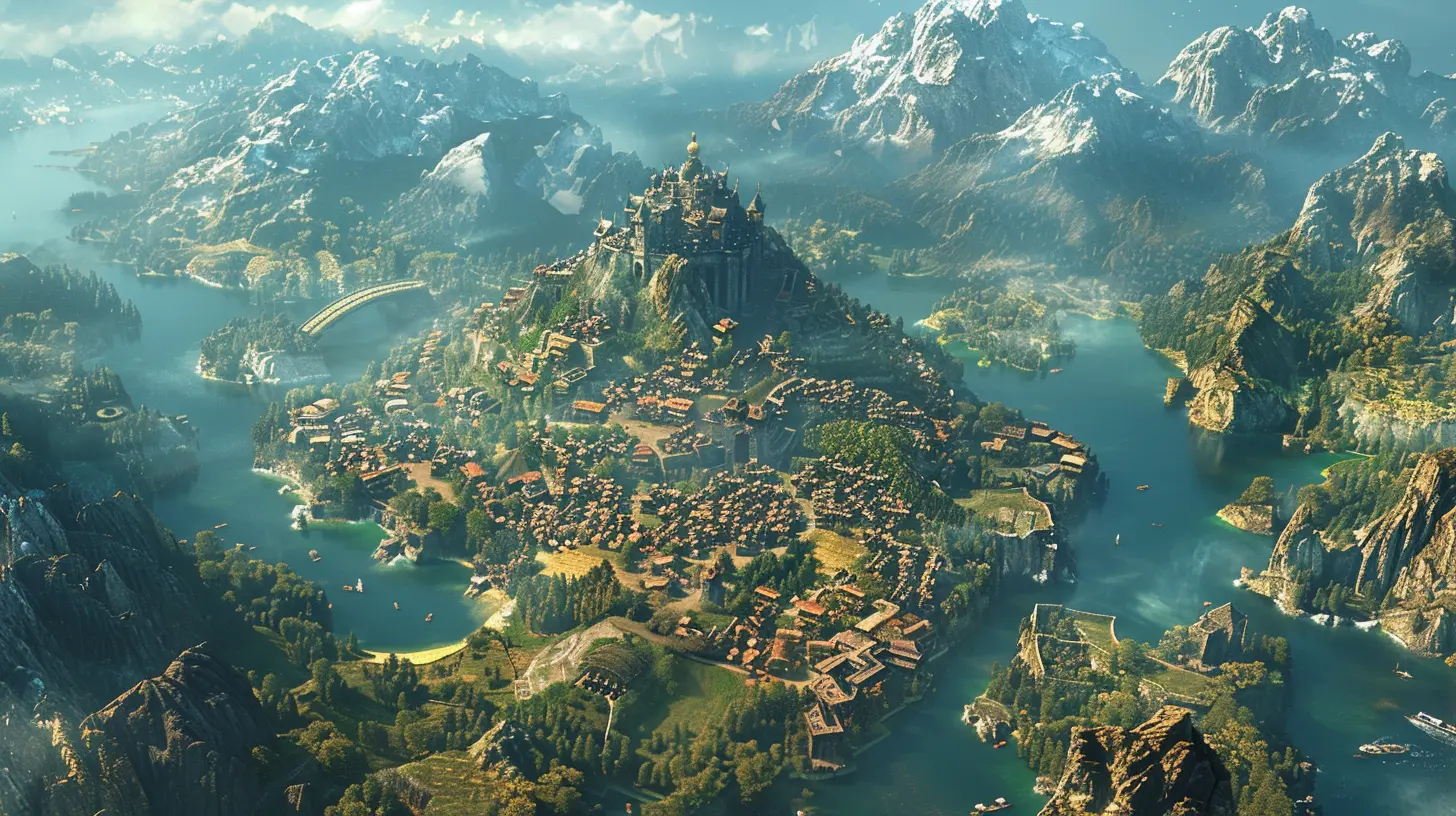
The Natural Advantage: How Terrain Drives Strategy
Ever played a strategy game and found yourself camping on a hill for better defense? That’s no coincidence. Terrain dictates tactics.Mountains: The Great Dividers
Mountains are often portrayed as natural barriers. They separate cultures and create isolated societies. In games like The Elder Scrolls V: Skyrim, the rugged mountains not only split regions but also represent political boundaries between Nords, the Empire, and neighboring provinces. These divides often lead to misunderstandings, cultural clashes, and even civil wars.Rivers and Coastlines: Birthplaces of Civilization
Rivers are more than just water currents—they’re lifelines. In Civilization games, starting near a river provides fertile soil for crops and the potential for trade. Similarly, coastal cities become hubs of foreign exchange and power projection through naval dominance.Being near water has always meant opportunity and risk. It opens the doors for trade... and invasion.
Deserts and Tundras: Harshness Breeds Hardiness
Harsh environments forge tough people. The barren icefields in games like Frostpunk or the blazing heat of desert regions in Fallout: New Vegas shape not just survival, but mindset, politics, and culture. Scarcity leads to competition. Limited resources often spark aggressive expansion or ruthless politics.Surviving in the wasteland isn’t just tough—it’s political.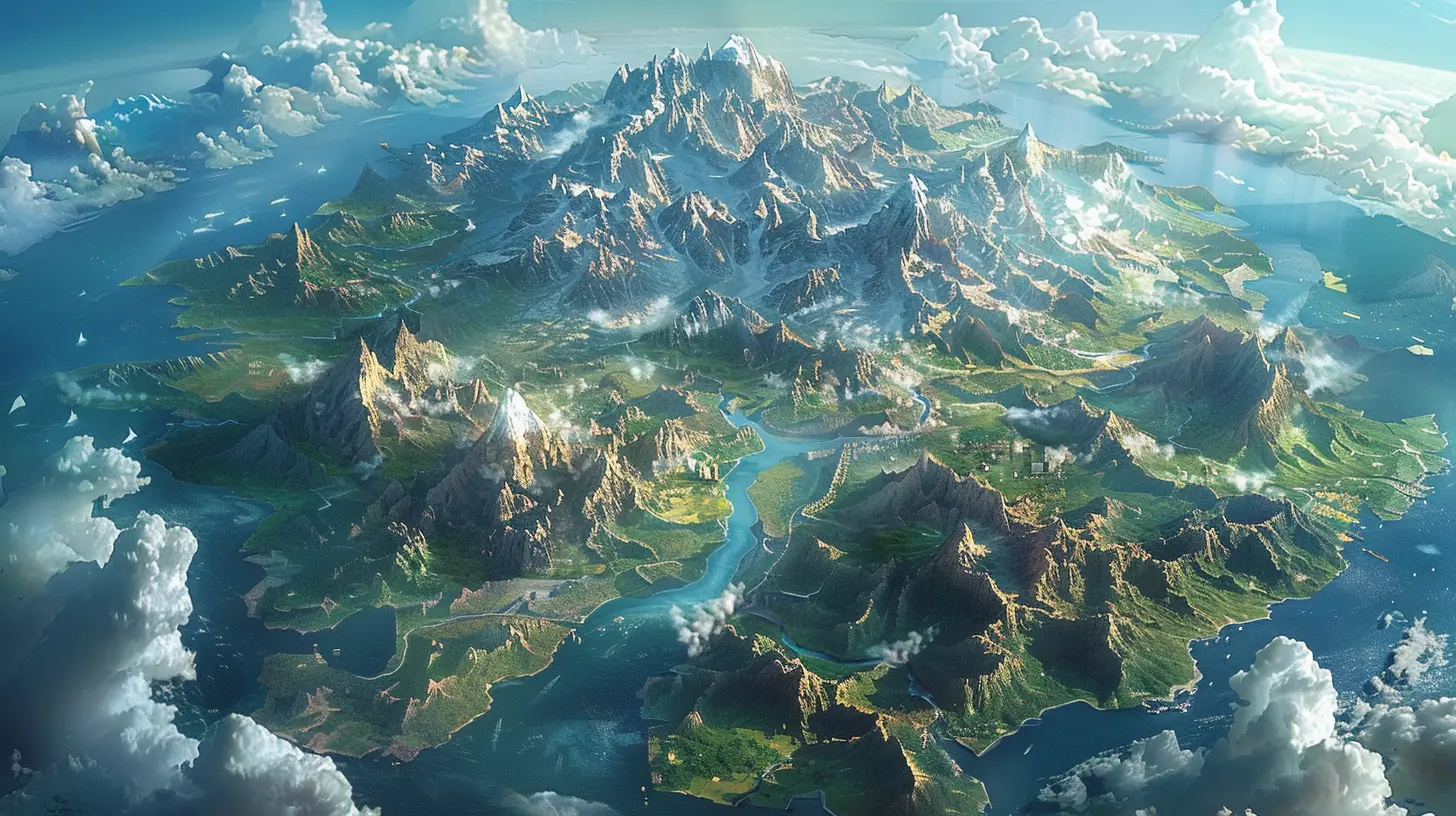
Resources Make (and Break) Empires
Who has the gold? The oil? The magic crystals? That’s often the real question behind many in-game wars.Resource Distribution and Conflict
In Total War series or Age of Empires, controlling essential resources like iron, wood, or oil isn't just helpful—it determines a faction’s fate. These resources control the economy, enable military advancement, and drive the plot forward through conquest.The imbalance in resource distribution is a classic driver of conflict. Some factions will always eye richer territories with envy—or desperation.
Magical Geography
Fantasy games often take liberties with resource allocation. Magic might flow more powerfully through certain areas (like ley lines in Dragon Age or The Witcher), giving those regions an upper hand.Who controls the ley lines, controls the magic. Who controls the magic? Well… you get the picture.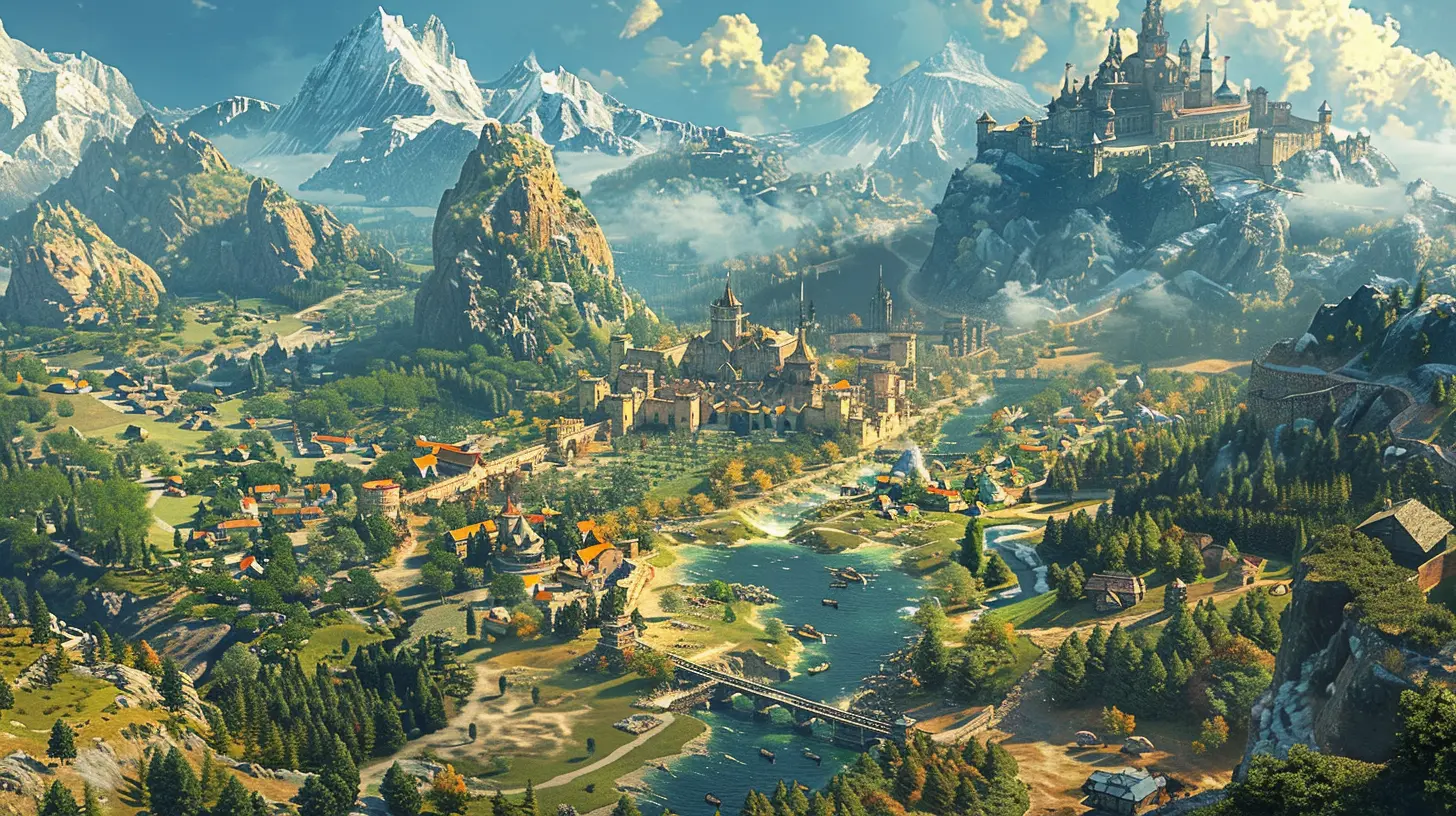
Borders and Chokepoints: The Art of Political Geography
Geography also defines borders—and not always neatly. In many games, tactical chokepoints like narrow mountain passes or river crossings become the scene of endless battles.Chokepoints: Where Empires Clash
In StarCraft, narrow terrain corridors become deadly ambush zones. In Mount & Blade, mountain passes serve as both defenses and traps. He who controls the pass, controls the region.These critical areas are so important for defense and trade that they often turn into hotspots for prolonged military conflict.
Natural Borders? Not Always
Borders drawn along rivers or mountain ranges make sense. But sometimes, especially in procedurally generated maps like Minecraft or Dwarf Fortress, borders are arbitrary, leading to strange politics and unexpected feuds.Geographic sense often equals political stability. Without it? Chaos reigns.
Isolation vs Accessibility: The Tale of Two Factions
Isolation changes everything. A faction locked behind mountains or cut off by oceans may grow independently or stagnate. Meanwhile, those in the fertile crossroads of trade and diplomacy flourish—and get pulled into more political games.The Price of Isolation
In games like Stellaris, when a species spawns on the edge of the galaxy, they often evolve differently. They may develop advanced technologies in peace—or fall behind due to lack of interaction.Isolation protects, but it also blinds.
Open Borders, Open Wounds
Regions that are highly accessible, like the central plains in Europa Universalis IV, become political free-for-alls. Everyone wants a piece of the pie, and constant invasions are the price of prosperity.Some places are just too valuable to leave alone.
Culture Clashes and Regional Identity
When different geographies breed different cultures, you get tension. Culture isn’t just language or food—it’s shaped by environment. A desert tribe values water more than gold. A forest nation might prize secrecy and archery.Geography and Cultural Evolution
In fantasy RPGs, elves might dwell in secluded forests, dwarves in mountainous halls, and humans in fertile plains. These locations shape their entire worldview.The politics that arise are often a direct result of these differences. Elves often opt for isolationism. Dwarves might be defensive and traditional. Humans? Expansionist and diverse.
These aren’t random traits—they’re the children of geography.
Weather, Climate, and Seasonal Strategy
Weather systems in games are more than just eye candy. From the freezing winters of Kingdom Come: Deliverance to the acid rains in Fallout, climate can alter gameplay and politics.Winter Is a Political Weapon
Remember the Russian winter in history? Well, games use it too. In games like Total War: Three Kingdoms or Crusader Kings III, invading cold territories during the wrong season can doom your army.Weather can literally determine who wins and who loses. And let’s be honest—snow makes everything dramatic.
Sea Power vs Land Power
Some factions rule the land. Others dominate the seas. Geography determines both.Naval Empires
In games like Sid Meier’s Civilization or Empire: Total War, coastal nations can build powerful navies, explore new lands, and control trade routes. This gives them a massive edge in diplomacy and economics.But being a sea power also means defending a long coast. Vulnerability comes with reach.
Landlocked Struggles
Landlocked nations are often limited in exploration and trade. They have to focus on land warfare and diplomacy with neighbors. This influences their politics, usually forcing them to play defense or form alliances.The sea is a door—or a wall—depending on where you’re standing.
Dynamic Maps Mean Dynamic Politics
One amazing trend in modern gaming: dynamic geography. As the world changes—volcano eruptions, droughts, rising seas—so does the political structure.Terraforming and Environmental Shifts
In games like Civilization VI or Frostpunk, changing geography alters your entire strategy. Flooded cities, burnt forests, or ice-covered lands can create refugee crises, food shortages, or political uprisings.A shifting world breeds shifting alliances.
Geography as a Living Character
When geography changes, it’s almost like the land itself has agency. It’s not just a setting—it’s a player in the game.Case Studies: Geography-Driven Politics in Popular Games
Let’s look at some games that really nailed this concept.The Elder Scrolls Series
From the cold, mountainous terrain of Skyrim to the temperate landscapes of Cyrodiil, political factions and cultural identities are deeply tied to geography. The Nords are shaped by their frozen homeland—tough, proud, and resistant to foreign rule.Crusader Kings III
This grand strategy game makes geography central to political power. Want to defend your kingdom? Better have a river or mountain on your side. Expanding into harsh deserts? Hope your supply lines hold.The Witcher 3
Every region feels different—not just in visuals, but in how people act, who’s in power, and what tensions exist. The swamp dwellers of Velen live in fear and superstition, while the sunny Nilfgaardian Empire projects might from its sprawling fields and roads.Final Thoughts: Geography Is the Real Puppet Master
Here’s the bottom line—game worlds, like our real one, are ruled by geography. It shapes how societies grow, where conflicts erupt, and what stories get told. The most immersive games understand this and use it to craft believable, dynamic, and politically complex worlds.So next time you load up a new world, don’t just look at the map. Study it. Think about why that mountain range is there, why that city’s by the water, or why two factions are fighting over a dusty canyon.
Chances are, the land knows the answers better than anyone.
all images in this post were generated using AI tools
Category:
World BuildingAuthor:

Audrey McGhee
Discussion
rate this article
2 comments
Thor Roberts
Geography in games: where a mountain range can spark a war and a river can solve a feud! Who knew terrain could be the ultimate party crasher?
February 15, 2026 at 6:01 PM
Rachel Sanchez
Great insights! It's fascinating how geography influences not just game mechanics, but also the narratives and conflicts. Your analysis adds depth to our understanding of game design. Keep it up!
November 8, 2025 at 4:33 PM

Audrey McGhee
Thank you! I'm glad you found the insights valuable. Geography truly plays a crucial role in shaping both mechanics and narratives in games. Appreciate your support!


